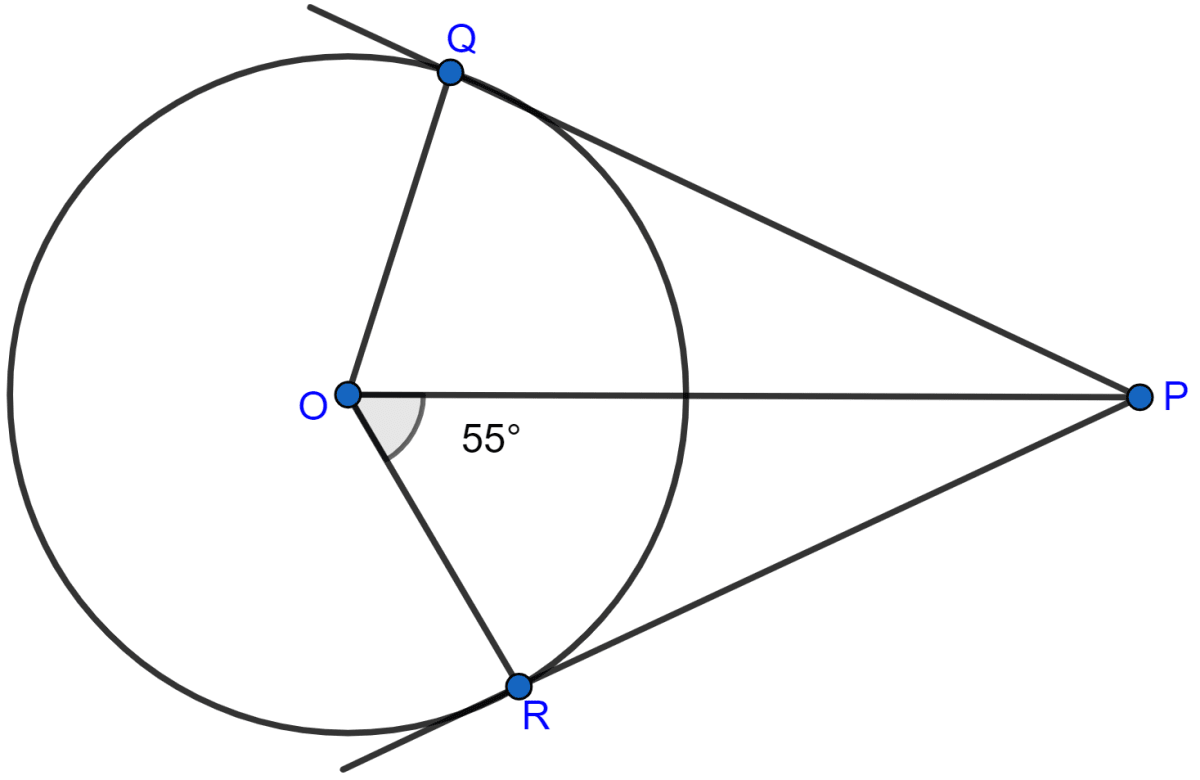Mathematics
At one end A of a diameter AB of a circle of radius 5 cm, tangent XAY is drawn to the circle. The length of the chord CD parallel to XY and at a distance 8 cm from A is
4 cm
5 cm
6 cm
8 cm
Circles
5 Likes
Answer
The figure is shown below:

Since tangent and radius at point of contact of a circle are perpendicular to each other. Hence,
XAY ⊥ AO
Given XAY || to CD hence,
CD ⊥ AB.
In right angled triangle OEC,
OE = AE - AO = 8 - 5 = 3 cm.
⇒ OC2 = OE2 + CE2 (By pythagoras theorem)
⇒ 52 = 32 + CE2
⇒ CE2 = 25 - 9
⇒ CE2 = 16
⇒ CE = 4 cm.
Similarly in right angled triangle OED,
⇒ OD2 = OE2 + ED2 (By pythagoras theorem)
⇒ 52 = 32 + ED2
⇒ ED2 = 25 - 9
⇒ ED2 = 16
⇒ ED = 4 cm.
⇒ CD = CE + ED = 4 + 4 = 8 cm.
Hence, Option 4 is the correct option.
Answered By
2 Likes
Related Questions
In the adjoining figure, PQ and PR are tangents from P to a circle with centre O. If ∠POR = 55°, then ∠QPR is
35°
55°
70°
80°

In the adjoining figure, PA and PB are tangents from point P to a circle with centre O. If the radius of the circle is 5 cm and PA ⊥ PB, then the length OP is equal to
5 cm
10 cm
7.5 cm
5√2 cm

If radii of two concentric circles are 4 cm and 5 cm, then the length of each chord of one circle which is tangent to the other is
3 cm
6 cm
9 cm
1 cm
In the adjoining figure, O is the centre of a circle and PQ is a chord. If the tangent PR at P makes an angle of 50° with PQ, then ∠POQ is
100°
80°
90°
75°
